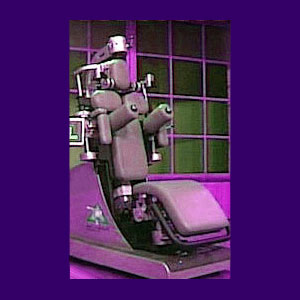
Herniated disc treatment is a diverse healthcare specialty with many therapy options to choose from. There are both medical and alternative treatments available. It is often difficult and confusing for the patient to know what is right for them. The one thing that all of these patients really want is herniated disc pain relief. The only question is… How do they find it?
Research shows that most disc protrusions are not problematic and therefore require no treatment at all. Research also shows that patients who seek no treatment for disc issues may be better off over time than those who do. In a medical sector which provides such a diversity of therapy options, this is truly an eye-opening set of facts.
This treatise provides details on the most often utilized treatments for intervertebral herniations and other abnormal disc pathologies. If you are confused about the best herniated disc treatment, then this discussion will put you on the right path towards relief.
Traditional Medical Approach to Disc Treatment
There are many paths to medical herniated disc care. Here is a typical progression used by countless patients as advised by their physician:
Bed rest and limited activity are used during the acute phase when the pain is too severe for the patient to do much else. This may last days or weeks, regardless of whether the disc has been linked to the symptomatic expression or not.
Spinal traction might be employed to keep the patient resting in bed, especially in underdeveloped countries.
Pain management drugs may be handed out like candy. These may include pain relievers, inflammation reducers and muscle relaxants.
Epidural injections may be recommended immediately or may be used if the disc does not feel better after a specified length of time. Most patients will endure several rounds of injections over several months or years.
Physical therapy is started in an effort to rehabilitate the back or neck. This exercise treatment is often supplemented by continuing injections or drugs for symptom management.
Back surgery is a drastic option recommended for patients who do not fully recover or for those who demonstrate severe and intractable symptoms. Once again, this recommendation is often made without any definitive evidence linking the expression to the herniated disc.
A good doctor will always proceed with the most conservative methods first. Surgery is rarely an immediate need, except in extreme cases, such as cauda equina syndrome. If you feel your doctor is suggesting surgery too early in your treatment, make sure you get a second opinion.
Alternative Herniated Disc Treatment
These disc treatments may be used individually or in combination with each other. Alternative and complementary treatments for herniated disc pain may also be used with the traditional medical approach, as well:
Chiropractic can be effective at managing disc symptoms for many patients.
Acupuncture is a great form of effectual and natural pain relief for a wide range of dorsalgia problems, including disc pain.
Electrotherapy can be utilized in a professional medical setting or at home, using simple TENS devices.
Spinal decompression may allow the resolution of disc problems without surgery. Although noninvasive, this can be a curative path to care for many patients.
Ozone discolysis is an innovative injection technique that is still being developed as a potentially viable therapy.
Knowledge therapy is the ideal treatment when back or neck pain is not actually related to a disc origin, but instead mistakenly blamed on the culprit disc. Yes, this is an extremely common occurrence!
I believe that most providers of these arts and sciences truly mean well and would like to cure their patients. However, patients involved in most forms of alternative therapy tend to stay in treatment much longer than in the traditional medical approach.
Some patients fall into a lifelong cycle of treatments to maintain their health. Some of these treatments actually inform the patient that lifelong care is preferable. It sounds like a great sales approach to me. Use a time of emotional and physical weakness to plant the seeds for a lifelong customer… ooops, I mean patient. Hmmm, ethically suspect to be sure.
Be careful of opportunistic care providers. Trust your instincts. If something seems a little off, it might be a good idea to go elsewhere for ongoing care.
Treating Herniated Discs
If the disc treatment does not do anything to repair or resolve the actual physical problem, then it is only going to treat your symptoms. Symptomatic treatment will never cure you.
How are chiropractic, acupuncture or electrotherapy going to remove a damaged disc that is pressing on a nerve? They won’t. They can only offer possible relief for the symptoms. Remember this when considering the difference between a treatment and a cure. However, never forget that so many of these treatments mistakenly pre-suppose a direct correlation between the existence of the herniation and the expression of pain. This link can surely exist, but must be studied and proven through diagnostic evaluation. This is never accomplished for most patients.
Additionally, the simple fact remains that symptomatic herniations are the gross exception to the rule, rather than the rule itself. Never forget this fact when considering whether herniated disc treatment is even necessary at all.





